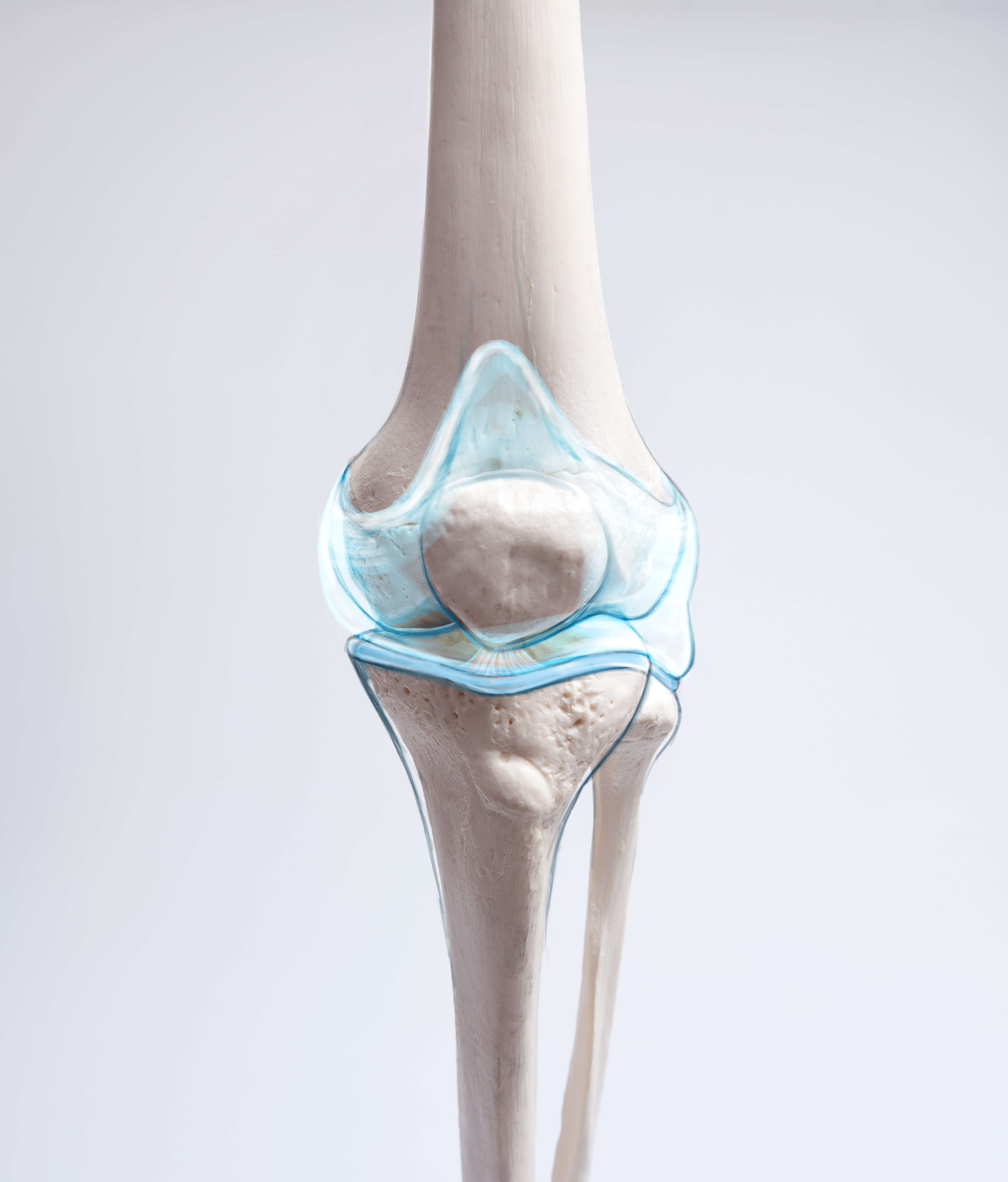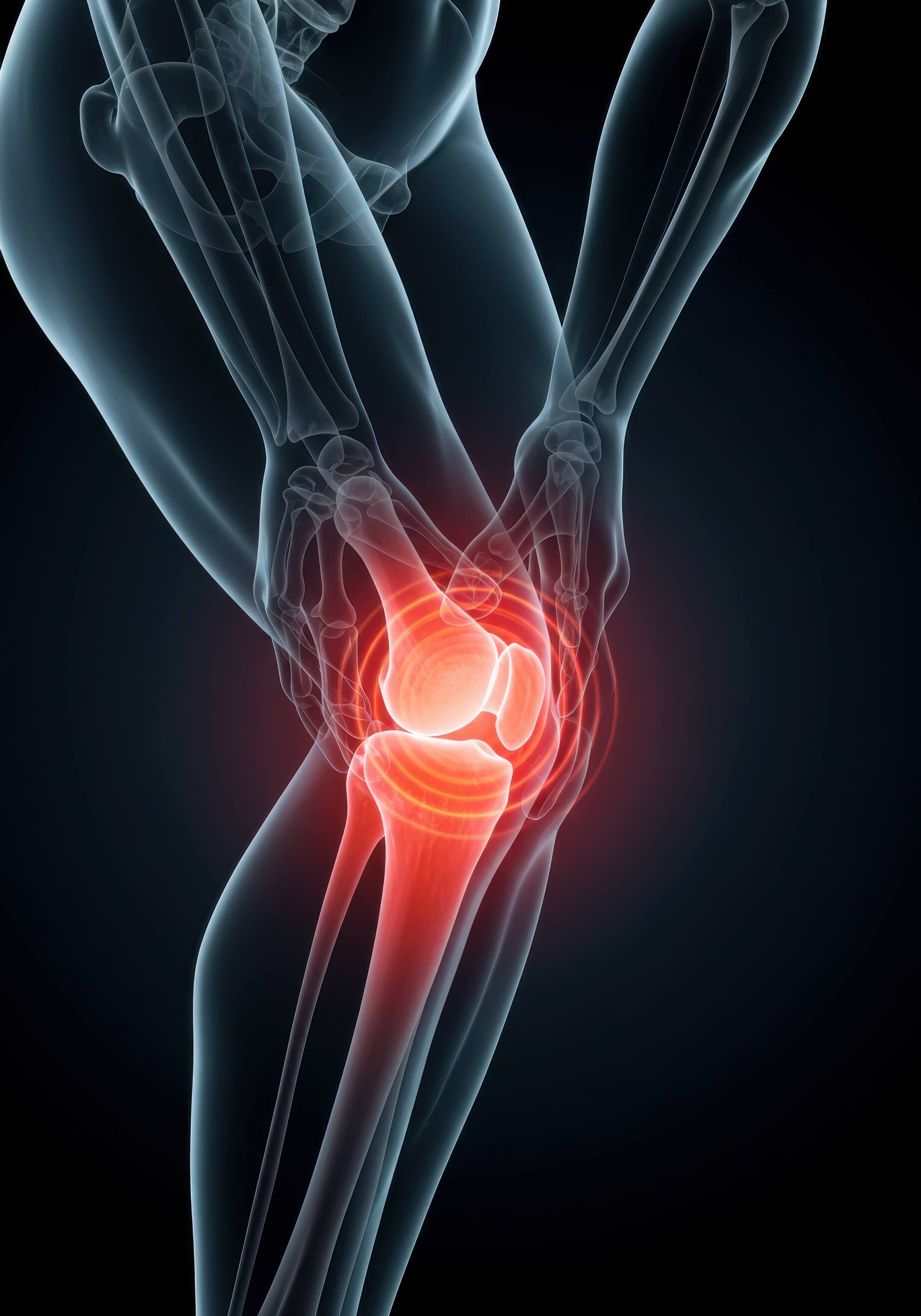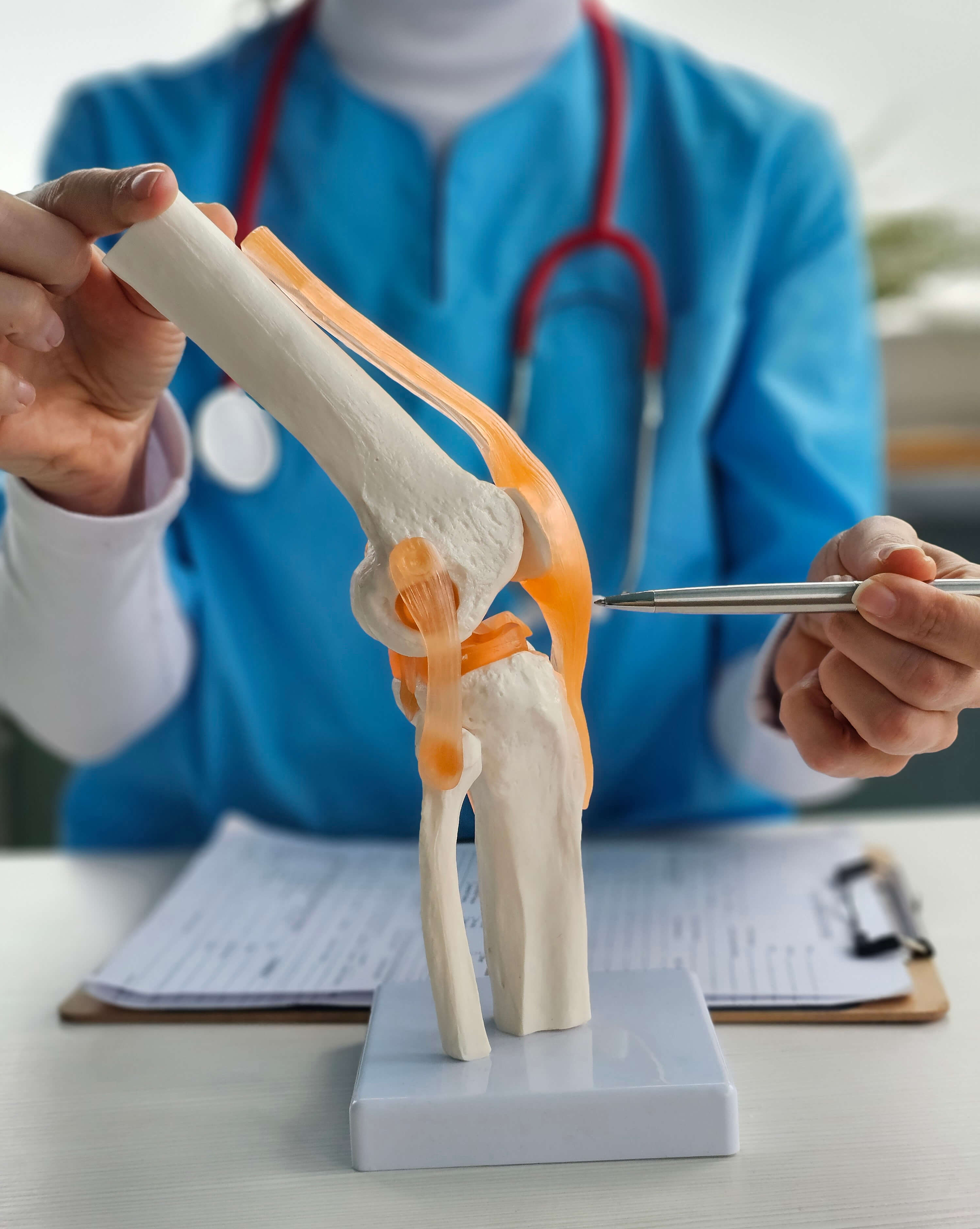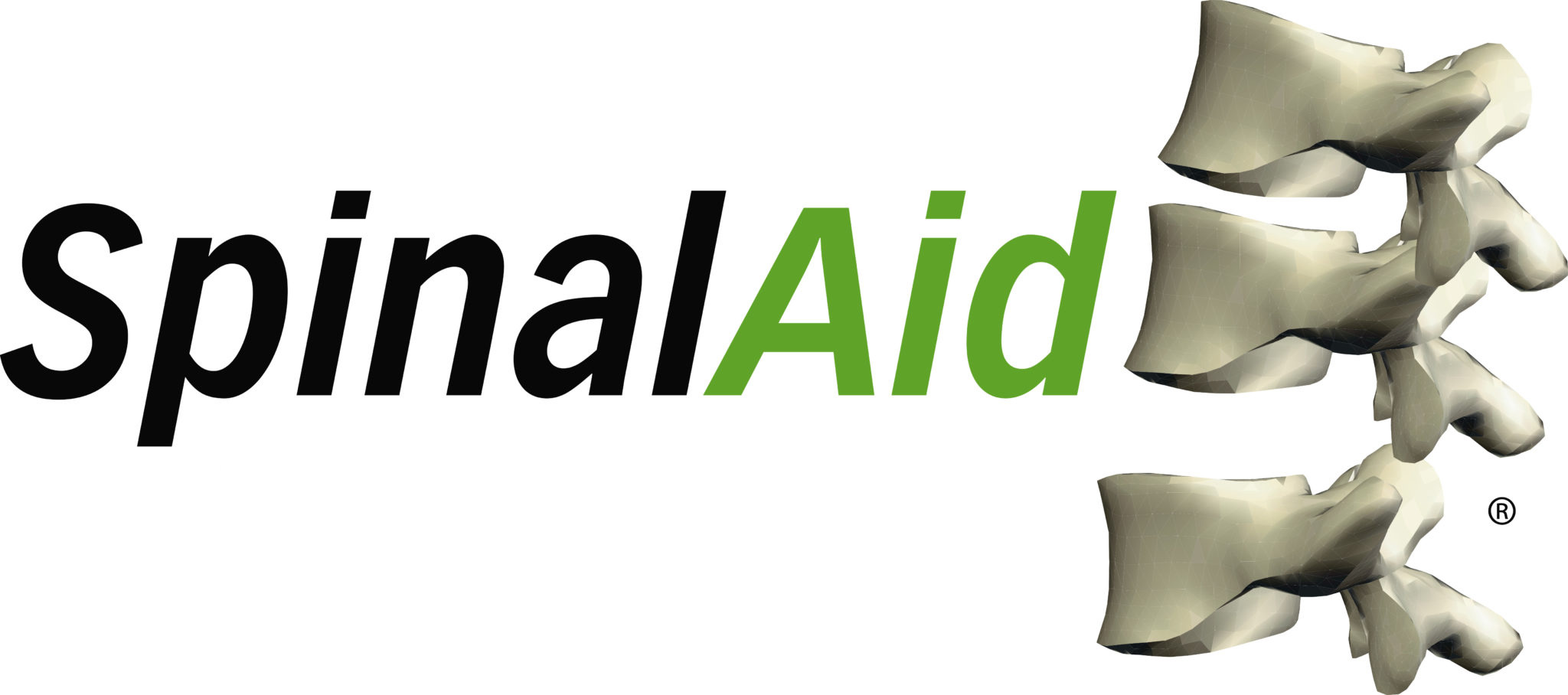Knee Pain
Services
DISCOVER THE PROTEOGLYCAN MATRIX
The proteoglycan matrix plays a critical role in knee joint function, and its degeneration leads to significant biomechanical challenges.
Accu-Knee decompression therapy effectively mitigates these issues by unloading the joint, promoting cartilage repair, and enhancing lubrication.
Especially when combined with targeted supplementation, this therapy offers a comprehensive approach to restoring knee health and improving quality of life.
The proteoglycan matrix is a vital component of the cartilage in the knee joint, providing the structure and resilience needed to withstand compressive forces. Proteoglycans are molecules composed of a protein core and glycosaminoglycan (GAG) chains. These chains attract water, creating a hydrated gel that enables cartilage to maintain its elasticity and cushioning properties.

THE PROTEOGLYCAN MATRIX IS ESSENTIAL FOR:
Joint Stability
Lubrication and Friction Reduction
Shock Absorption
The hydration within the matrix allows the cartilage to compress and rebound, absorbing impacts during activities like walking or running
THE DEFORMATION RATIO AND CARTILAGE WEAR
The deformation ratio refers to the extent to which cartilage compresses under pressure. In a healthy knee, cartilage can compress slightly and rebound without damage. However, as the proteoglycan matrix depletes and cartilage thins, several issues arise:
Excessive Deformation: Worn cartilage compresses beyond its limits, leading to microscopic tears and further degeneration.
Lateral Movement: Decreased structural integrity causes cartilage to shift laterally under pressure, creating uneven wear patterns.
Inflammation: Damaged cartilage releases inflammatory mediators, contributing to joint pain and stiffness.
These problems perpetuate a cycle of degeneration, further accelerating cartilage breakdown.

EFFECTS OF UNLOADING AND DECOMPRESSION THERAPY
- Redistribution of Joint Pressure
- Passive Lubrication
- Promotion of Healing
By decompressing the joint, pressure is relieved, allowing cartilage to expand and realign. This lateral movement reduces further damage caused by asymmetric stress
Decompression creates space in the joint, allowing synovial fluid to seep into cartilage layers. This fluid delivers nutrients and aids in restoring cartilage integrity. Reducing load encourages cartilage to repair microdamage and restores joint function by creating a more favorable biomechanical environment.
Reducing load encourages cartilage to repair microdamage and restores joint function by creating a more favorable biomechanical environment.

EXCLUSIVE LASER TECHNOLOGY
The exclusive technology used in the Spinal Aid Center of Wausau is the MLS M7 Robotic Laser Therapy – the most advanced therapy laser in the market today. FDA-cleared to treat pain and inflammation, the MLS M7 Robotic Laser technology is non-invasive, fully automated, and completely safe.
It works by emitting specific wavelengths of light to treat painful and debilitating conditions. Light energy enters the damaged cells and stimulates intracellular activity, reducing pain in the treated area, and speeding recovery time. It treats the pain and inflammation associated with many common orthopedic conditions including knee pain, rotator cuff tears, tennis elbow, sciatica, arthritis, carpal tunnel syndrome, ankle tendinitis, and more.
Our M7 Laser Helps Treat:
- Knee Pain
- Rotator Cuff Tears
- Sciatica
- Tennis Elbow
- Arthritis
- Carpal Tunnel Syndrome
- Ankle Tendinitis
…and more.

